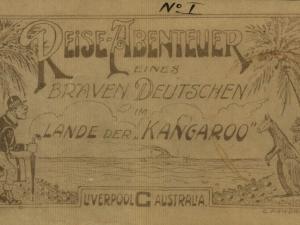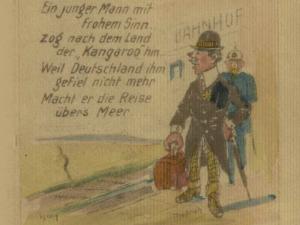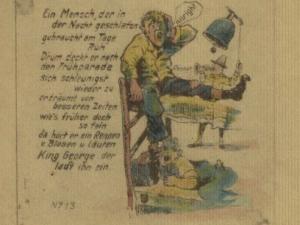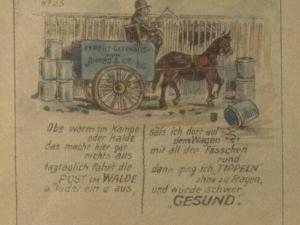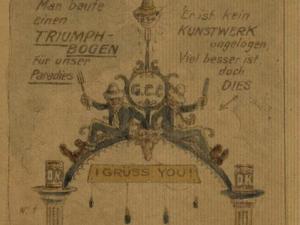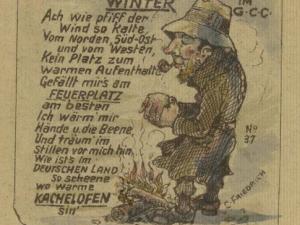How a comic about Australian internment camps made it to Comic-Con 2022
A unique series of comic books will be showcased by a University of Adelaide researcher at the 2022 Comic Con International in San Diego. A recent article by Dr Aaron Humphrey, Media Studies, and Dr Simon Walsh, German Studies, has described the extraordinary significance of a sequence of five small autobiographical comic books produced by a pseudonymous author in the Holsworthy Internment Camp around 1918.
The sequence of five small books titled Voyage and Adventures of a Good Little German in Kangarooland (Reise-Abenteur eines braven Deutschen im Lande der Kangaroo) documents life in an Australian internment camp during the First World War. From 1914 to 1919 these camps detained Australian residents who were viewed as potentially sympathetic to a wartime enemy and came to house nearly 7000 ‘enemy aliens’.
Humphrey and Walsh’s article describes two volumes of the comic books in the University of Adelaide Library at the time, along with other series fragments in the State Library of NSW and the National Library of Australia. Since the article’s publication, Sally Goers Fox has contributed the remaining volumes, making the University of Adelaide series the only known copy of the entire series in an Australian archive or library.
These comics were created by a German internee, known only as C. Friedrich, and depict an autobiographical avatar who begins as a sharply dressed ocean liner passenger, ready to start a new life in Australia, but is hauled away to Holsworthy shortly after his arrival, suspected of being a spy.
Historians describe Holsworthy internment camp as overcrowded, with basic sanitary facilities and inadequate accommodation for the extremes of heat and cold. Despite these hardships, internees fashioned a vibrant camp life. Friedrich’s comics capture the cafes, restaurants and flourishing theatre scene the internees created. Through comic imagery and wordplay, Friedrich explores the collective opposition of internees to the Allies and camp guards and the challenges of the different communities brought together in the camp.
Autobiographical comics have been documented as emerging as a genre in the 1960s and beyond, with several well-known examples of memoir, autobiography and reportage. Humphrey and Walsh’s article describes an example more than 50 years earlier, which shares many common themes in later examples: migration, transnational identity, and the mundanity and irony of daily life.

